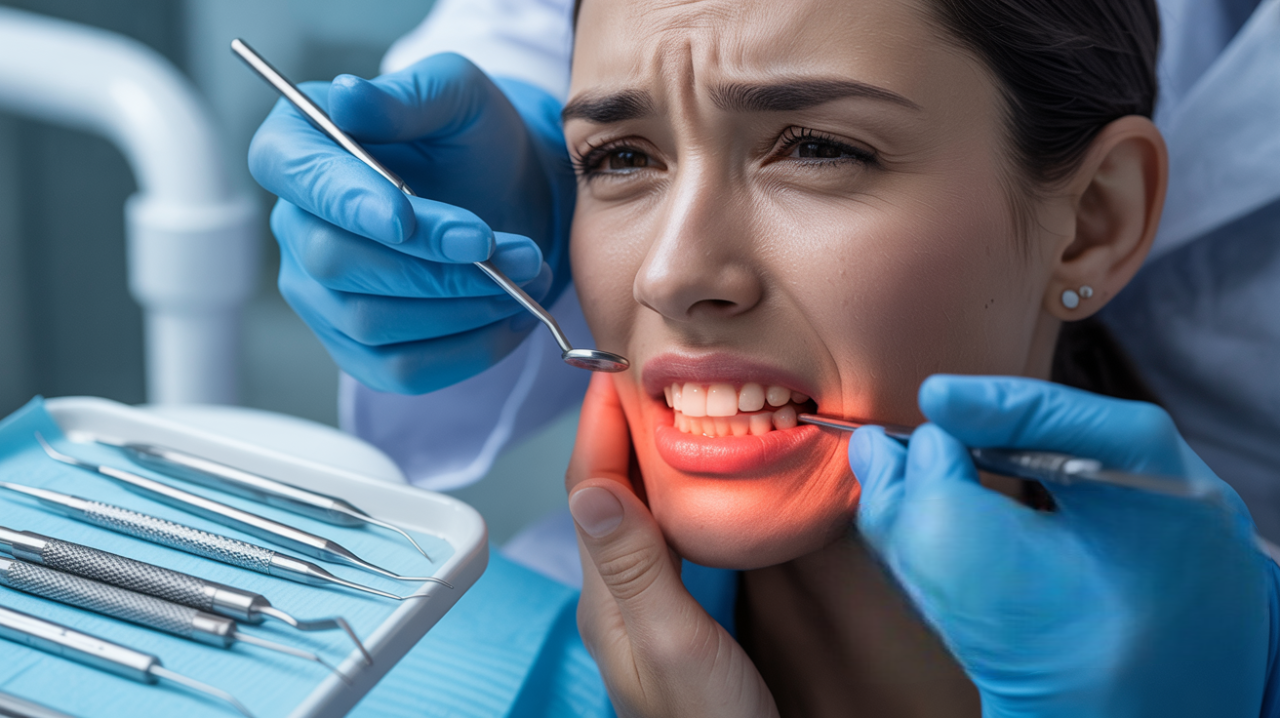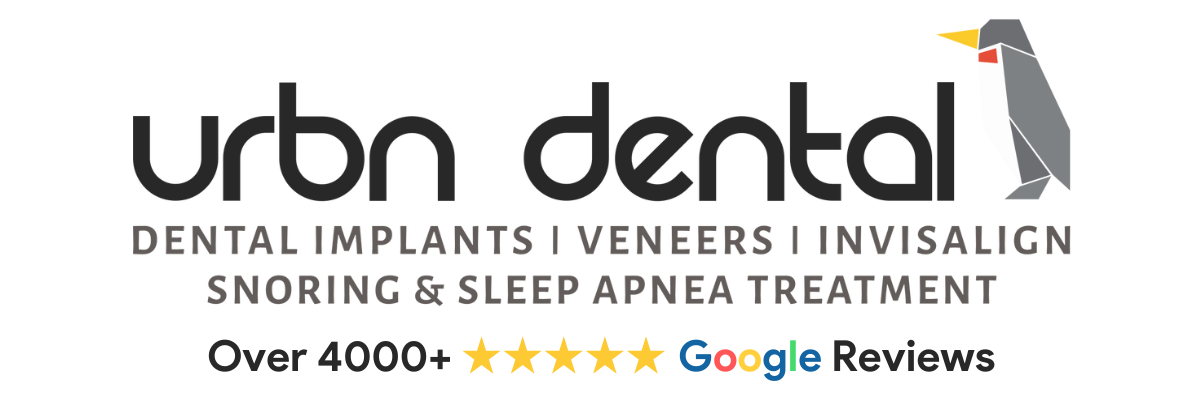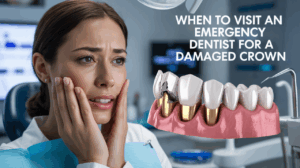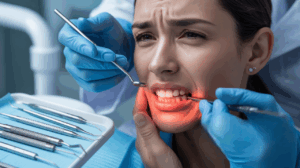
A swollen gum can affect more than just your smile. Everyday activities, like drinking coffee or speaking, may become uncomfortable. You catch yourself pressing your tongue against the sore spot without realizing it. Small irritations build until focus and energy fade. Oral infections affect not only the mouth but also daily life.
In this blog, we’ll explain what dental infections are, how our emergency dentist in Houston, TX, may evaluate and treat them, and steps you can take to help prevent future flare-ups.
What Is a Dental Infection? Causes
A dental infection occurs when bacteria enter weak points in the teeth or gums. It may begin with a small cavity or gums that bleed during brushing. Over time, bacteria multiply until pain or swelling signals a problem.
Often, there are warning signs before an infection develops. A cracked tooth from chewing hard foods, a filling that weakens over time, or food lodged beneath the gums can create an entry point for bacteria.
Common causes include:
- Cavities left untreated until decay reaches the pulp
- Gum disease creates pockets that trap bacteria
- Cracked or chipped teeth that allow bacteria to spread
- Old dental work that has weakened or worn down
According to the National Institutes of Health (NIH), odontogenic infections (those that originate from dental sources such as cavities or gum disease) account for nearly 75% of oral and maxillofacial space infections.
If you’ve noticed changes such as bleeding gums or persistent sensitivity, it’s a good idea to schedule a dental checkup before the issue progresses.
Signs You Need Our Emergency Dentist in Houston, TX
The following are the key signs that you need to see our emergency dentist for immediate care:
- Persistent Pain and Swelling
If pain persists despite over-the-counter medication, or if swelling develops in the jaw, cheek, or neck, it could indicate an infection that requires professional evaluation.
- Fever or Fatigue
The body often responds to infection with fever, tiredness, or a general feeling of being unwell.
- Bad Taste or Odor
A sour taste or noticeable odor may occur if pus drains from an abscess. This usually requires dental treatment to resolve.
If you notice these symptoms, consider contacting our emergency dentist in Houston for an evaluation.
How Our Emergency Dentist in Houston, TX Diagnoses Oral Infections
Our emergency dentist usually begins with a clinical exam, gently checking along the gumline and tooth surfaces. X-rays may be taken to see if the infection has reached the roots or bone.
You may be asked:
- When did the pain begin?
- Has it changed over time?
- Does hot or cold food trigger discomfort?
These details help determine whether the issue stems from a tooth, gums, or deeper infection.
Important: An in-person examination by your dentist is necessary to determine the best course of treatment.
If pain or swelling is making daily activities difficult, book an appointment with our emergency dentist in Houston, TX, to get clarity and relief.
Treatment Options for Oral Infections by Emergency Dentists
Treatment will vary depending on the severity and location of the infection, but emergency dental care aims to provide both immediate relief and long-term protection of oral health.
Drainage of Abscess
If pus has built up, the dentist may drain the abscess to relieve pressure and allow healing.
Root Canal Therapy
When infection reaches the pulp of the tooth, root canal therapy may be performed to remove infected tissue and preserve the tooth.
Antibiotic Support
Antibiotics may be prescribed if swelling has spread beyond the tooth or gums.
Tooth Extraction
If a tooth cannot be restored, extraction may be recommended to stop the infection from spreading. Replacement options can be discussed later.
If you’re unsure which treatment may apply to your situation, consider visiting our Houston office for a personalized evaluation.
How to Avoid Oral Infections in the Future
Consider the following points to avoid oral infections in the future:
- Brush and floss regularly to keep bacteria under control.
- Schedule routine dental checkups and cleanings to catch issues early.
- Rinse after meals and replace your toothbrush every few months.
- Limit sugary and acidic foods that weaken enamel.
- Drink water throughout the day to wash away food particles and support saliva production.
Small changes, such as treating a minor cavity early, may help prevent a dental emergency in Houston later.
Note: After treatment, follow-up care is important to ensure healing and prevent further complications. Our emergency dentist will guide you through the necessary steps.
Final Thoughts
Oral infections can affect eating, speaking, and overall comfort. Our emergency dentist in Houston, TX, can evaluate your symptoms, recommend treatment, and work toward preserving your natural teeth whenever possible.
If you’re experiencing persistent discomfort, swelling, or other concerns, consider scheduling an appointment with our Houston office for an evaluation.
Disclaimer: This article is for educational purposes only and does not replace professional advice. A dentist must examine your case in person to determine the best treatment.
Frequently Asked Questions
What are the early signs of an oral infection?
Persistent pain, gum swelling, or a sour taste in the mouth may indicate an infection.
Can oral infections spread beyond the mouth?
Yes. In some cases, bacteria may spread to nearby tissues and contribute to fever or fatigue.
How does a dentist treat a dental abscess?
Treatment may include draining the abscess, prescribing antibiotics, and performing a root canal or extraction, depending on severity.
Will an infected tooth always need to be removed?
Not always. Many cases can be treated with root canal therapy to preserve the natural tooth.
What daily habits reduce the risk of infection?
Regular brushing, flossing, professional checkups, and early treatment of minor dental issues lower the risk of infection.




